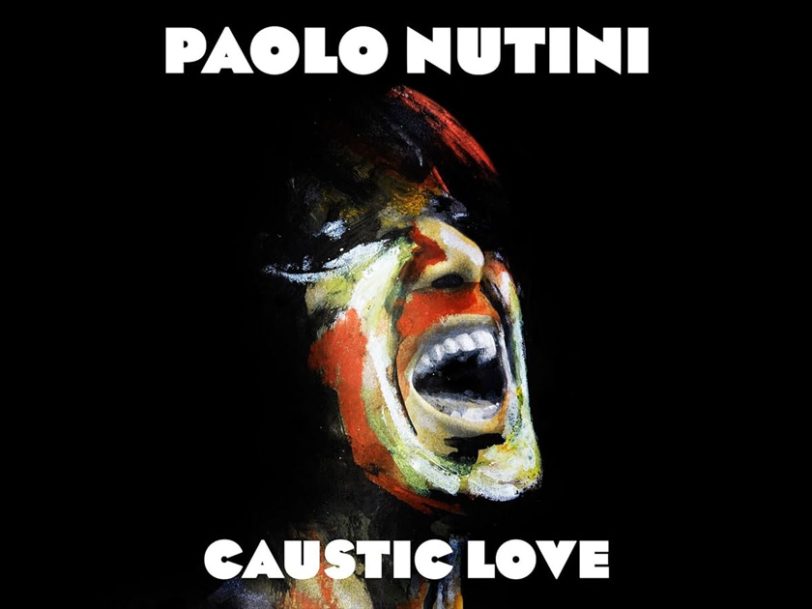After taking a long break between albums, Scottish singer-songwriter Paolo Nutini made a highly anticipated return with his third studio album, Caustic Love, in 2014. A masterful blue-eyed soul record, Caustic Love was a spirit-driven venture that marked a departure from the vintage pop sound of Nutini’s previous efforts, displaying a grittier and more eclectic style influenced by funk, R&B and 70s soul.
The album also found Nutini coming into his own as a songwriter and lyricist, writing or co-writing every track on a work that channelled his life experiences and poetically explored his romantic setbacks. Thanks to Nutini’s robust yet refined vocals, the album received widespread critical acclaim and re-established the Paisley-born star as one of the UK’s finest singer-songwriters.
Here is the story of Caustic Love and why it stands the test of time as a pivotal moment for Paolo Nutini’s increasing maturity as a songwriter.
Listen to ‘Caustic Love’ here.
The backstory: “I think my body might’ve needed a bit of life nutrition; I had to expand my mind a little bit”
Still reeling after his second album, Sunny Side Up, sold over one and a half million copies in the UK in 2009, Paolo Nutini made the difficult decision to take a much-needed break from the music industry. “I needed to be back home and with the people I loved and outside of this music world,” he told Variance magazine.
Returning to his childhood home, in Paisley, Scotland, where his parents ran a chip shop called Castelvecchi, Nutini, reeling from the breakup with his childhood sweetheart, Teri Brogan, took up new hobbies such as carpentry and venturing out into the Scottish Highlands to do a spot of amateur photography. Coming down from a whirlwind of publicity after being signed to Atlantic Records at the age of 17 and supporting Led Zeppelin for their reunion show at the O2 Arena, Nutini relished the chance of finally taking some time out and getting back in touch with himself.
“I liked the fact that there was no schedule and no pressure. It’s nice to feel you’re not being challenged all the time,” he admitted to Paul McBride in an interview with mX. “I think my body might’ve need a bit of life nutrition; I had to expand my mind a little bit.” Seeking further nourishment, Nutini opted to go travelling through Europe, visiting some of the cities that he’d previously toured but had little chance to fully explore.
- Best Paolo Nutini Songs: 20 Pop-Rock Gems To Funk Your Life Up
- Best Soul Songs: 30 Transcendental Tracks That Define The Genre
- Best Soul Albums Of All Time: 20 Immortal Classics You Need To Hear
“I did all this free roaming,” Nutini told Big Issue magazine. “I was just wandering around and taking some pictures, embracing the culture, putting myself out there and trying to be sociable. Looking for adventure really.” Time away from the music business left him feeling recharged and replenished, enabling Nutini to reset his body clock as he turned his mind to creating his next album.
The recording: “There was just no plan. We didn’t know what we wanted, or if I actually wanted to make a record”
Recorded over a period of several years in a variety of recording studios across Scotland, Ireland, England, Spain and North America, Caustic Love was a long-gestating passion project. After writing a handful of songs with Brian Eno collaborator Leo Abrahams, Nutini settled in for a batch of recording sessions at SARM Studios – formerly Basing Street Studios – in East London, hallowed ground where Bob Marley had worked on The Wailers’ Catch A Fire and Exodus albums, back when the facilities belonged to Island Records.
Among the new songs Nutini wrote for Caustic Love was Looking For Something, a lushly arranged ballad containing sage words of wisdom spoken to him by his mother (“Sometimes you’ll rise, and there’s time you’ll fall/After all, you’re just blood and bones”). “Obviously I picked the more poetic and romantic of the advice she used to give me,” Nutini joked to Big Issue. “It wasn’t, ‘Get your shoes off the fucking carpet, son,’ or, “Fucking stop that racket up there,’ or, ‘Stop scratching yer baws.’” The song creates a sense that Nutini’s leave of absence had helped him recharge his batteries, enabling him to get back in touch with what truly mattered.




